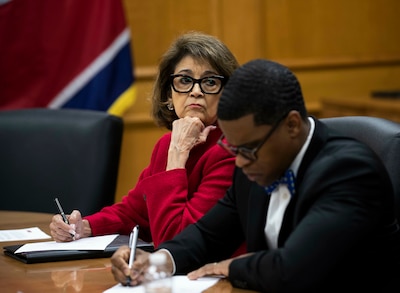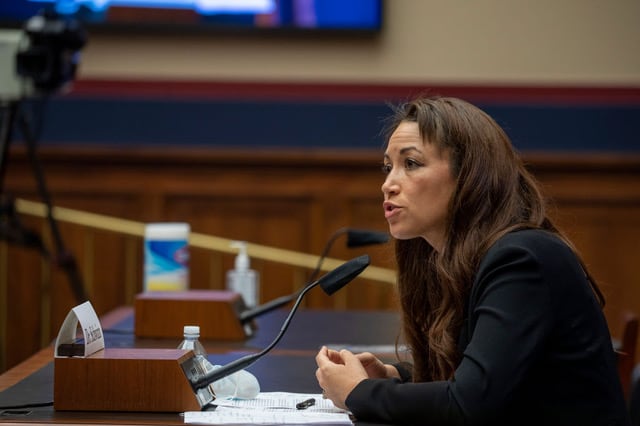Two legislative leaders are calling for an investigation into the Tennessee Department of Education’s management of millions of dollars earmarked for coronavirus relief, as well as the state’s school voucher program for students with disabilities.
Sen. Dolores Gresham and Rep. Mark White, who chair the legislature’s two main education committees, want the state’s chief internal investigator to look into “questions and concerns” raised about both CARES funding and the 4-year-old voucher program known as Individualized Education Accounts.
Neither lawmaker provided details but, in an Oct. 23 letter to Comptroller Justin P. Wilson, said the concerns “come from every level of education across the state.”
“In light of these outcries,” they wrote, “we respectfully request that your office conduct an investigation into the management of these two areas to determine if they are being administered in accordance with both state and federal law.”
A spokeswoman said the department will cooperate fully in any investigation.
The request comes as the department oversees a massive infusion of federal cash to respond to the pandemic while its own ranks have thinned due to significant turnover and restructuring under Commissioner Penny Schwinn. The education chief also has been rebuked by lawmakers for rolling out initiatives and taking administrative shortcuts without ample legislative input, review, or approval.
This summer, Tennessee was awarded almost $260 million in one-time education funding as part of the federal Coronavirus Aid, Relief, and Economic Security Act. The department is managing $26 million, with the rest going to the state’s 147 school systems to help pay for pandemic-related needs such as school building sanitation, new technology for remote learning, and support for students with special needs.
Of the $26 million stewarded by her department, Schwinn announced in May that half would be invested in technology, including grants to help districts provide students with new devices, plus $4 million for online instructional resources. The rest was to help some school systems grow innovative strategies to benefit students, recruit and equip new teachers, provide mental health and community resources, and train school leaders.
“We are confident in the allocation of CARES funding to school districts and the administration of the state set-aside, all of which has been presented to various levels of legislative leadership,” said spokeswoman Victoria Robinson on behalf of the department.
Under Schwinn’s leadership, the state’s nearly 4-year-old voucher program for students with disabilities has been rife with complaints from numerous parents and some district leaders.
Known as Individualized Education Accounts, or IEAs, the voucher-like program is designed to assist families who say public education isn’t working for their children. It provides taxpayer funding toward private school tuition, tutoring, and other education services for students with disabilities such as autism, hearing and sight impairments, and traumatic brain injury.
But last fall, many participants reported receiving their state disbursements late and complained that the program office was ignoring their calls and emails. The complaints came following a complete staff turnover in the office, part of a larger exodus of employees under Schwinn during her nearly two years on the job.
This summer, the department’s ability to manage the voucher program effectively was called into question again over enrollment violations as the number of participants doubled to 325.
The enrollment jump wasn’t surprising given that the coronavirus disrupted schooling worldwide, especially services for students with disabilities that are difficult to provide in a remote or virtual setting. But the increase was noticeable since the program has been small since launching in January 2017 with 36 families. Last school year, it served 165 students.
Robinson said this year’s enrollment was trimmed from 325 to 289 as some “account holders were removed because of inappropriate eligibility, moving out of state, re-enrolling in public school, or misuse of funds.”
It marked the first time that any enrollees have been found to be ineligible. In previous years, the IEA office rejected ineligible students as part of the application process — and before enrolling them.
In August, department officials dismissed two people who helped oversee the program, including Robert Lundin, the assistant commissioner whom Schwinn recruited from Texas to join her leadership team.
Asked about the enrollment issues, Robinson said: “While the IEA Program has had a history of challenges, an internal review by the department earlier this year has created process and codification improvements and we have seen a greater uptick in participation in the program.”

White, a Republican from Memphis, said he has not studied concerns that have been raised but agreed that the comptroller should look into them.
Gresham, a retiring legislator who sponsored the 2015 law that created the IEA program, said it’s especially important for the state to oversee with integrity any initiative that’s designed to help its most vulnerable students.
“We just want this to work the way it is supposed to work,” she said.
The comptroller is part of Tennessee’s legislative branch and serves essentially as the state’s independent “money cop.” When a legislator asks for an investigation, the office reviews the request and decides if a probe is merited.








